We, Women are Water campaign 2022
Global Alliance for Green and Gender Action
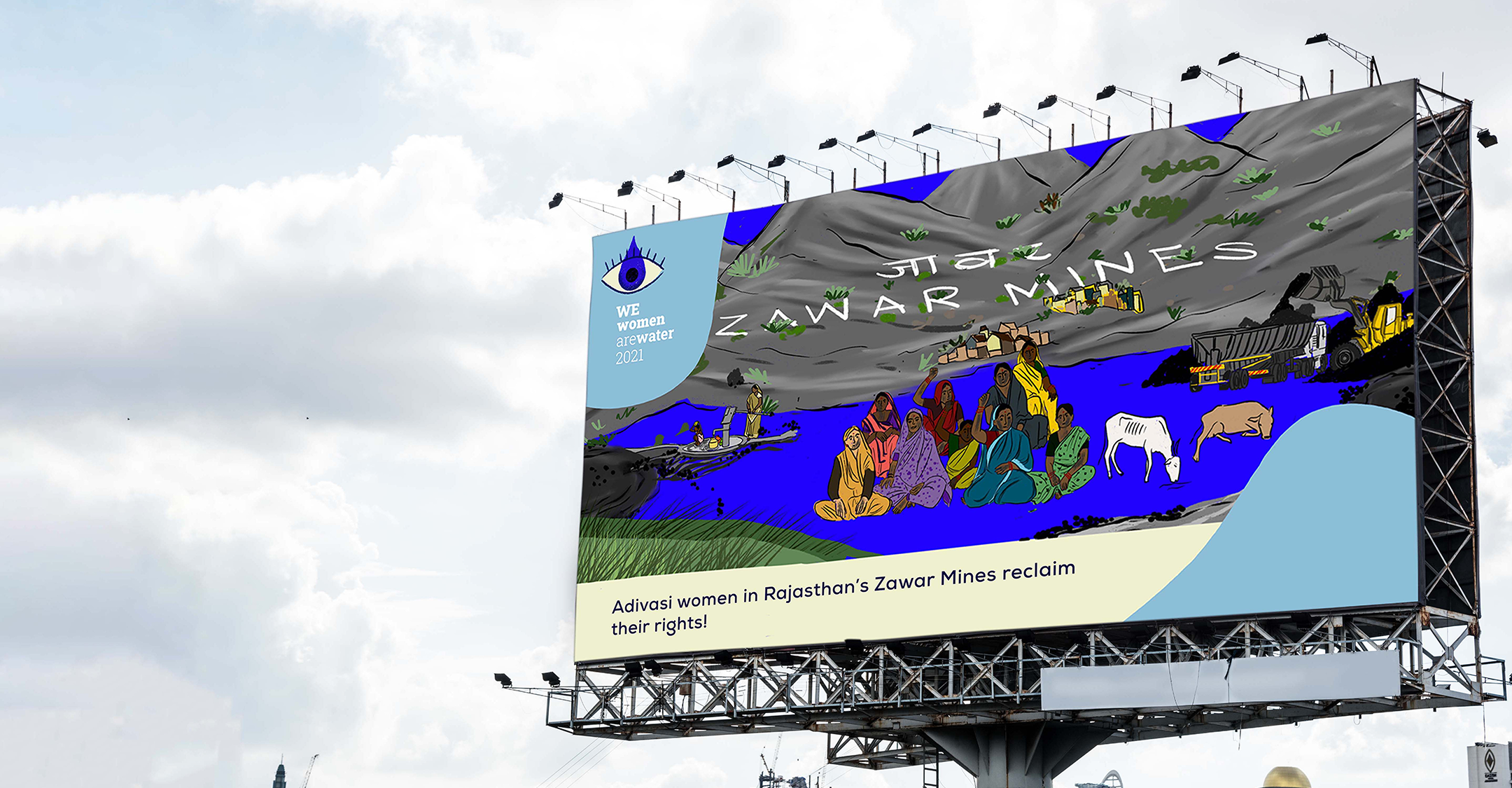
Client
Global Alliance for Green and Gender Action
Relationship
Since 2022
Services
Visual Design, Illustration
Voices of Women Water Defenders
A campaign illustrating women’s role, demands and actions in ensuring water security in the face of climate change.
Every year on International Women’s Day (March 8th) the Global Alliance for Green and Gender Action (GAGGA) launches a women-led community-based campaign that highlights women are in the best position to propose solutions and alternatives to the problems they face because they know the local landscape, language, culture and challenges of their constituencies.
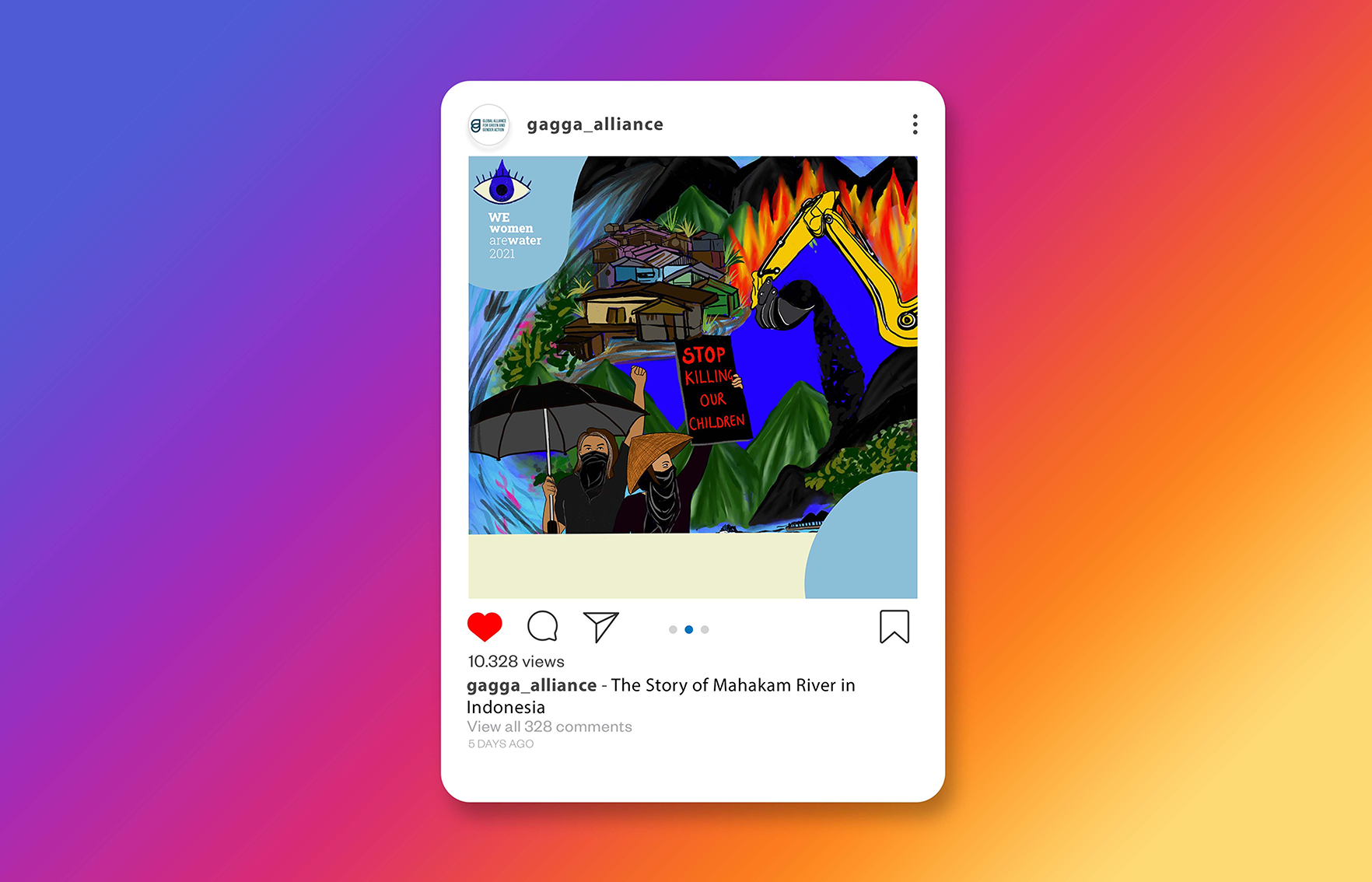
Can Urgent Action Funds Bridge the Gap in Rapid Response Funding?
Many funds around the world require several months to process a grant request as opposed to a small window of opportunity that exists to intervene and respond to critical human rights situations, especially in areas of armed conflict or escalating violence
The interrelated crises of water, climate and COVID-19 all share the same root causes: a deeply unjust and patriarchal economic system based on extraction and unlimited growth.
GAGGA provides a platform for the funds, NGOs and women-led community-based organisations of its network to join forces in resisting this exploitative model that pollutes communities’ land and water, and push for structural change and a just recovery that prioritises people and the planet over profit.
Despite the vast challenges, the combined pandemic and climate crises have revealed the strength and creativity of local women’s leadership, mobilising mutual support and community responses—the resilience of community-based organising led by women as well as practices that often rely on local, traditional, and indigenous-based knowledge to secure water.
As illustrators from Asia, we created images for cases from Asia, which includes,
Adivasi Women in Rajasthan’s Zawar Mines Reclaim Their Rights
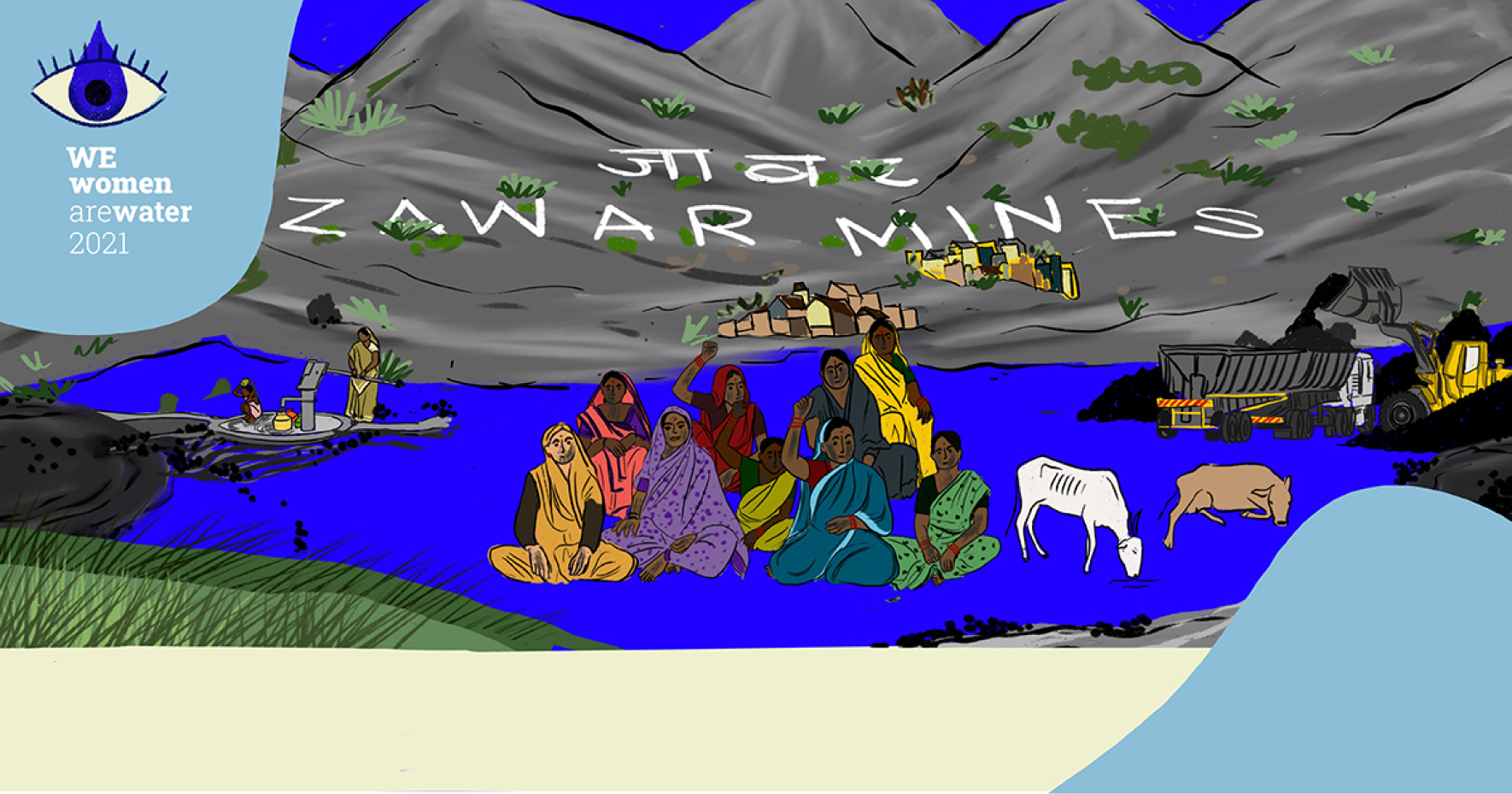
Kanpur is a village located in the periphery of the Zawar mines, an underground zinc mining operation owned by Vedanta-Hindustan Zinc Limited in Rajasthan’s Udaipur district and one of the oldest zinc smelting sites in the world. The mines have turned their water sources scarce and completely unfit for use, say the Adivasi residents of the surrounding villages. Women farmers are the most affected by the pollution caused by the mines as agriculture is their main source of livelihood and sustenance.
Women in Central Java Demand End to Mud Pollution From Geothermal Exploration
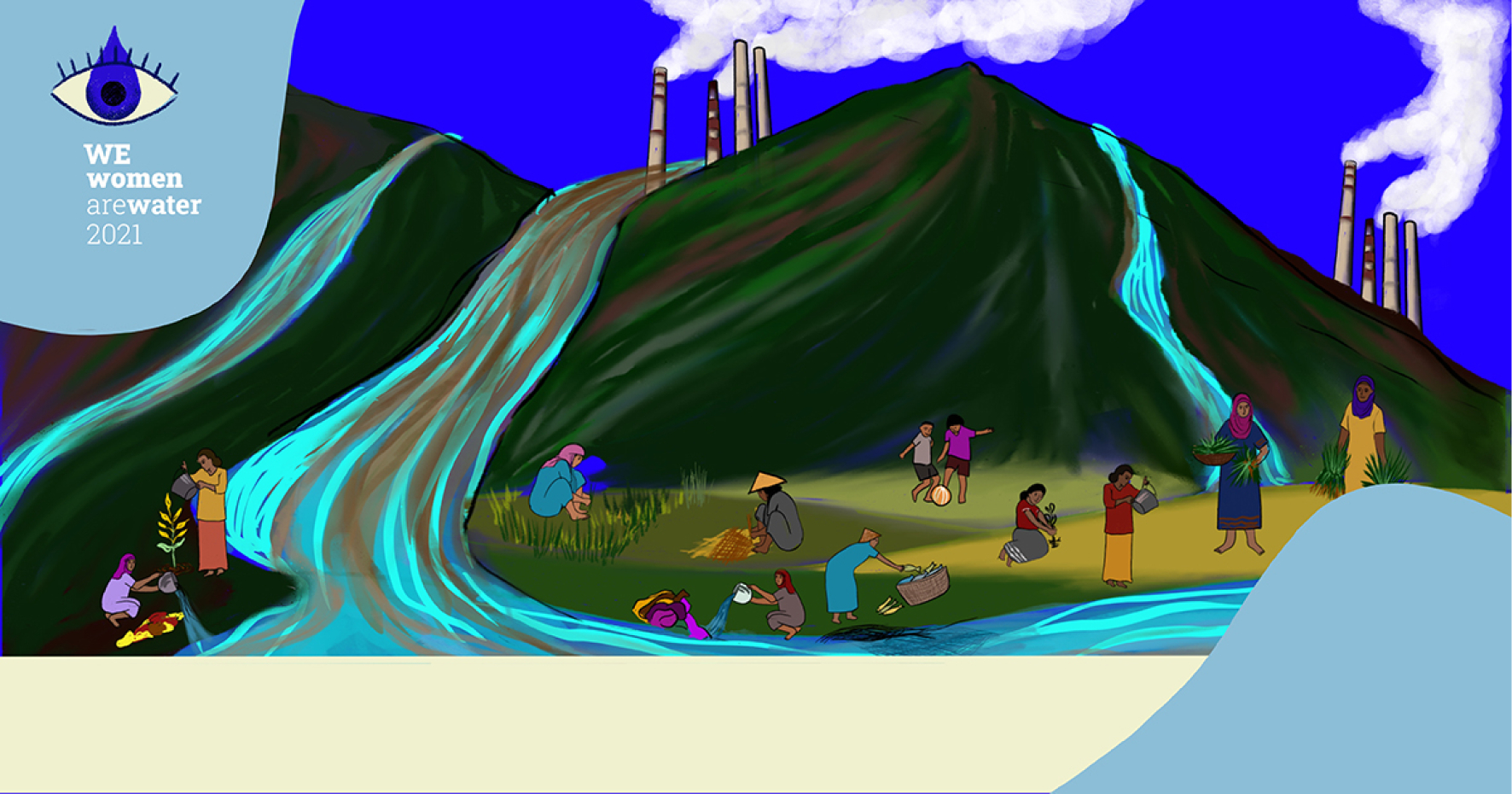
In November 2016, communities living on the foot of a volcano in Central Java, Indonesia, were surprised to find that the water of their main river had turned muddy. For the villages of Mount Slamet, the Prukut River is the main source of their water and livelihood; its water springs and streams allow the community to earn their income from fish and silk-worm breeding, farming and tofu production.
Female Herders in Mongolia Protect Their Oases From Mining Companies
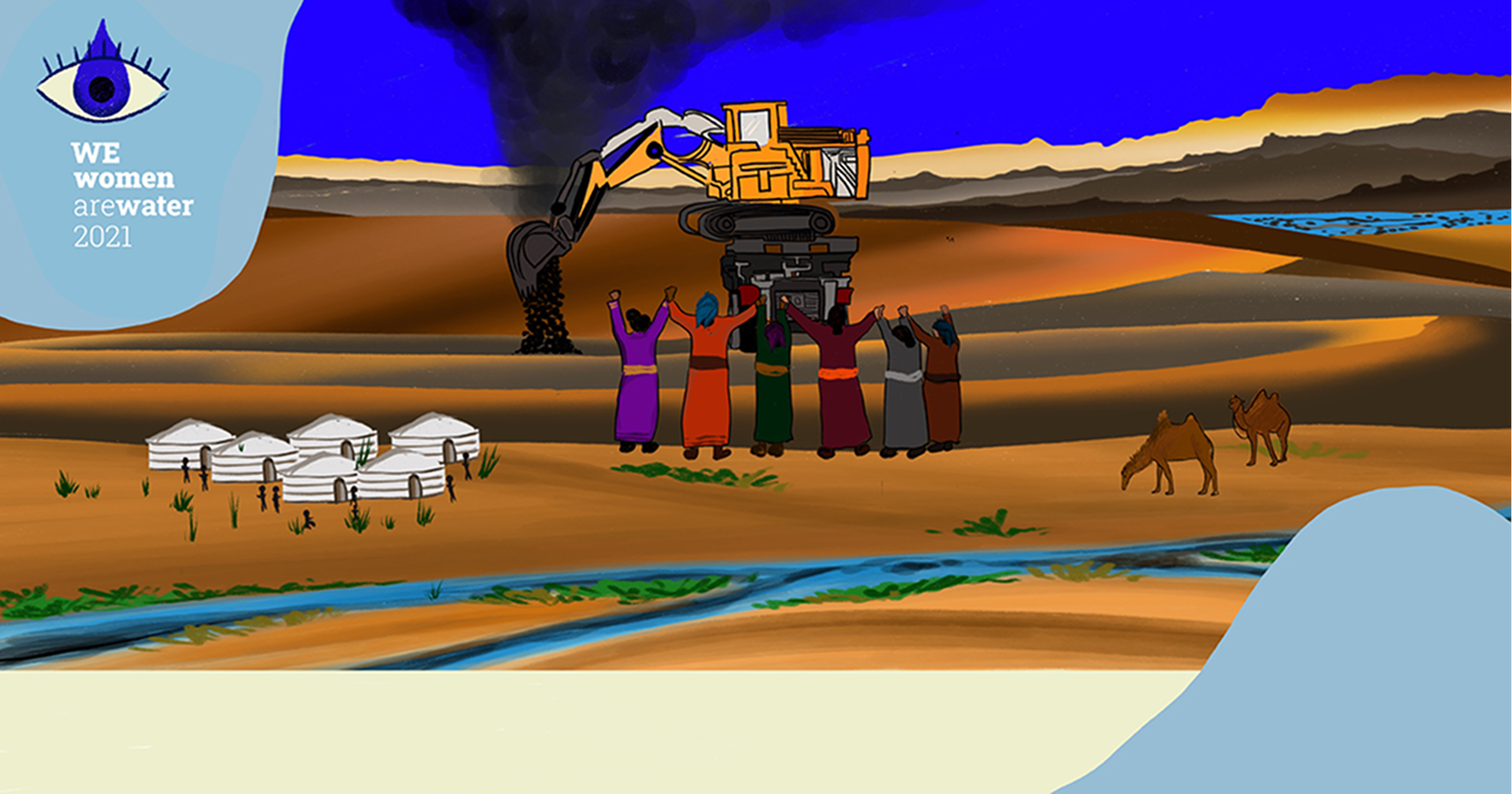
Two decades ago, Ömnögovi was the least populated province in Mongolia. Now, after a mining boom that made Mongolia the fastest-growing economy in the world in 2011, people from across the country travel to this mineral-rich area to work in the coal, gold, copper and silver mines that carve up the landscape. The mining industry, with its machinery, dust clouds and constant flow of lorries, operates alongside traditional herding lifestyles.
Skkim Story
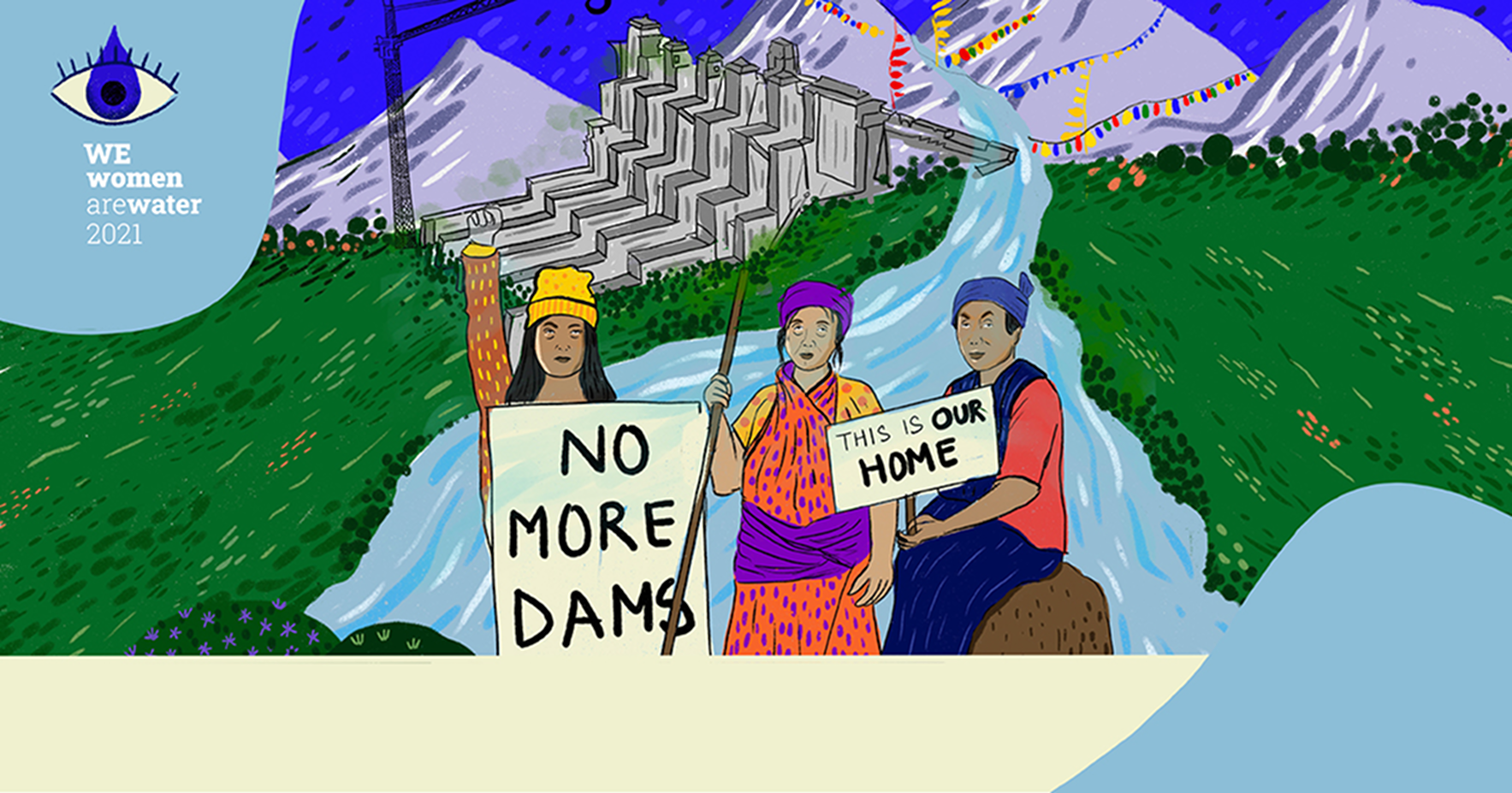
For over a hundred years, the second longest river in Indonesia and its surrounding ecosystems have been concessioned off to the extractive industry. Different parts of the Mahakam River in Kalimantan have been mapped, monetized and assigned different extractive purposes: logging, mining, industry, settlement, and many others. From 2009 to 2013, the Mahakam watershed lost 128 thousand hectares of its natural forest due to wood extraction, mining, and wide scale plantations
The Story of Mahakam River in Indonesia: From The Commons to Extractivism and Back
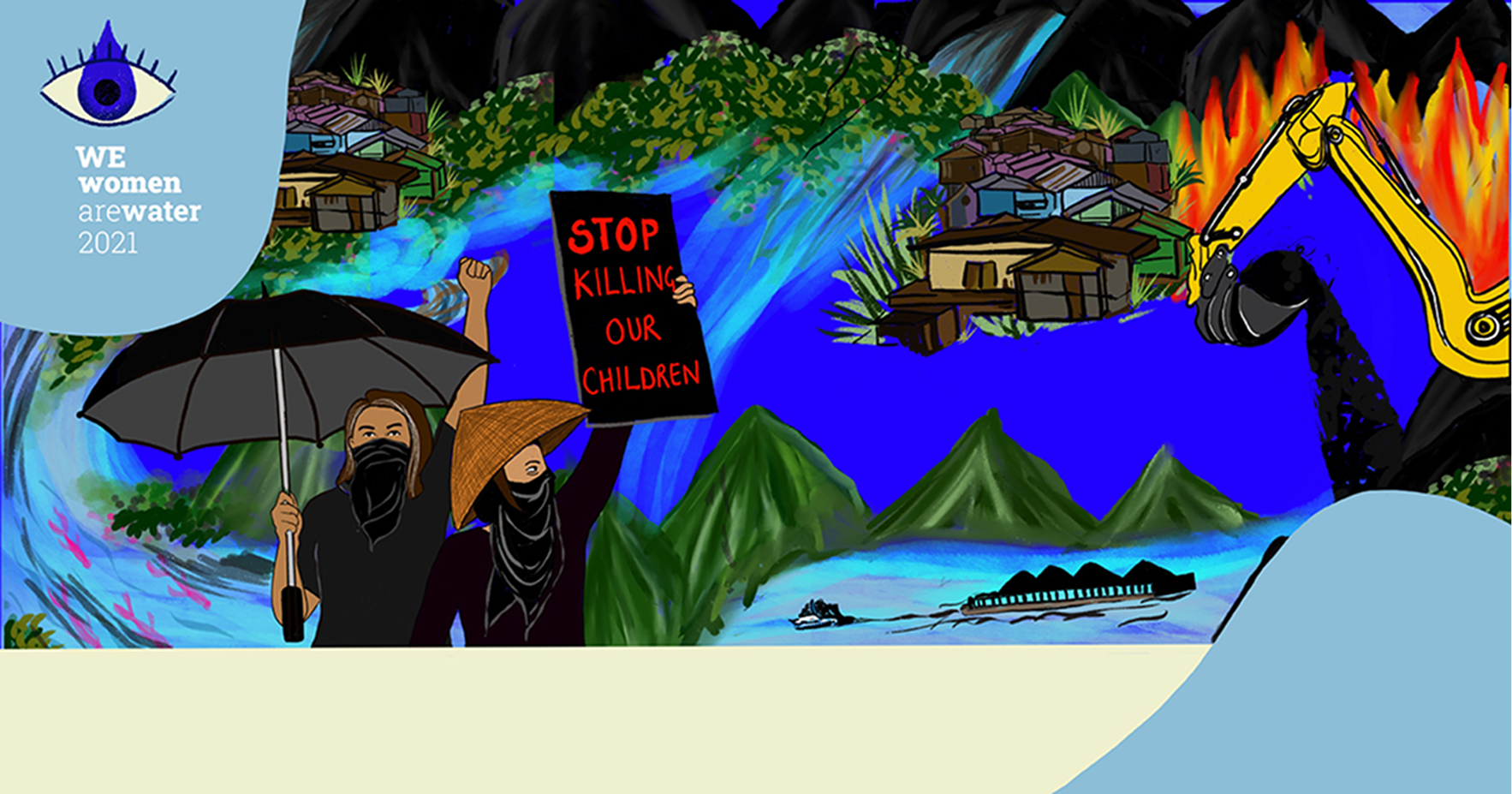
The social media campaign highlighted stories of GAGGA-supported communities in Africa, Asia and Latin America who are experiencing water insecurity due to climate change. These stories, which led up to World Water Day (March 22), though, make up a small sample, they reflect the reality of many communities across the globe.
The campaign spotlighted cases from Bolivia, Indonesia, Mongolia, Nigeria, Peru, and South Africa. And also, Bolivia, India, Indonesia and Guatemala where governments and companies promote technical solutions to the climate crisis, such as hydropower and geothermal, which protect corporate profits while negatively impacting critical ecosystems along with people’s access to land, food security and water.